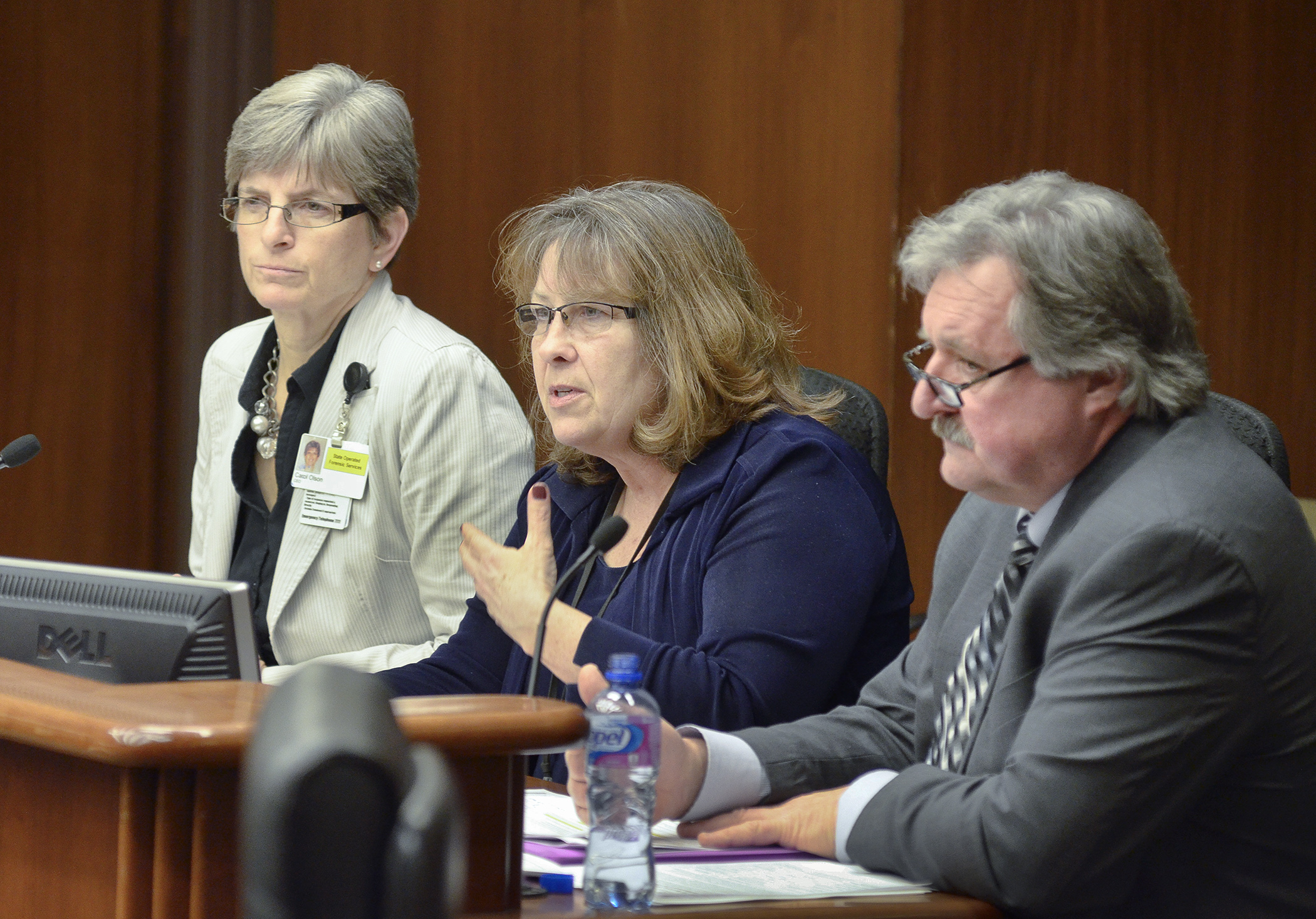DHS requests $10.4 million in emergency funding

The Department of Human Services seeks $10.4 million in emergency funding to cover expenses it incurred in order to comply with its conditional licensing requirements for the state security hospital in St. Peter.
The hospital cares for civilly committed patients and operates on the same campus as the Minnesota Sex Offender Program. The hospital serves 380 mentally ill or chemically dependent patients labeled dangerous, plus 252 people deemed sexually dangerous or sexual psychopaths.
Following a series of complaints and allegations, the department took several steps to address understaffing and overuse of restraint and seclusion techniques at the facilities.
The steps were required to continue operating under the watchful eye of the department’s inspector general. The details were explained Tuesday to the House Health and Human Services Finance Committee, which took no action. The funding request is expected to be rolled into a “deficiency spending bill.”
About 58.5 full-time equivalent security counselors were added at an additional cost of $8.2 million in the 2014-15 biennium.
Staff was required to receive best practice training in “person-centered thinking” and other training at a cost of $1.2 million in fiscal year 2015.
New security cameras and remodeling costs to separate the admitting area from the crisis unit will cost $600,000 in fiscal year 2015. Separation of the units became a priority after one patient caused the death of another, according to Inspector General Jerry Kerber.
Without the funding to cover the upgrades, DHS Deputy Director Anne Barry said the department would have a difficult time explaining to the courts why they can’t accept additional patients, or it may need to transition people back to the county level of care.
Under the law, those committed are considered “vulnerable adults,” who must be protected from abuse or neglect. In 2011, there were several substantiated cases of maltreatment, which resulted in the hospital operating on a conditional license.
Several changes have occurred to raise the level of care, including the hiring of Dr. KyleeAnn Stevens as forensic services medical director and a new administrator in 2014.
Extensive staff training was designed to empower staff to follow a chain of command and intervene without repercussions. They also must spend more time in the unit rather than in an office filling out reports.
Rep. Rod Hamilton (R-Mountain Lake) asked whether there are unnecessary mandated reports that keep staff away from patients.
Carol Olson, executive director of the DHS Forensic Services Division, said when staff isn’t documenting what goes on, it’s as if it never happened.
“There is a balance to be struck,” said Rep. Tina Liebling (DFL-Rochester).
Related Articles
Search Session Daily
Advanced Search OptionsPriority Dailies
Ways and Means Committee OKs proposed $512 million supplemental budget on party-line vote
By Mike Cook Meeting more needs or fiscal irresponsibility is one way to sum up the differences among the two parties on a supplemental spending package a year after a $72 billion state budg...
Meeting more needs or fiscal irresponsibility is one way to sum up the differences among the two parties on a supplemental spending package a year after a $72 billion state budg...
Minnesota’s projected budget surplus balloons to $3.7 billion, but fiscal pressure still looms
By Rob Hubbard Just as Minnesota has experienced a warmer winter than usual, so has the state’s budget outlook warmed over the past few months.
On Thursday, Minnesota Management and Budget...
Just as Minnesota has experienced a warmer winter than usual, so has the state’s budget outlook warmed over the past few months.
On Thursday, Minnesota Management and Budget...